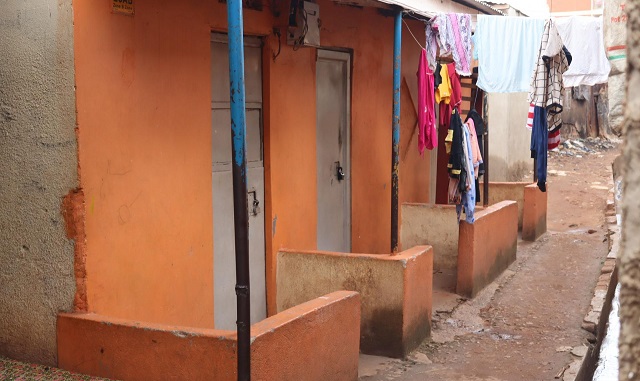
Kampala, Uganda | THE INDEPENDENT | Several Makerere University students have found solace in private rentals because of the high hostel fees. While hostels look fancier in terms of space, sanitation, security, and the overall surroundings, they are increasingly becoming unaffordable, pushing students to live in filthy rentals bordered by sewage and water trenches.
The hostels around Makerere, Kikoni, Kikumi, and Wandegeya charge between Shillings 500,000 and Shillings 2 million per semester, which is very costly for very many students. As a result, many students have now found relief in rental premises near the University including Kawaala, Kasubi, Makerere Kikoni, Bwaise, Kikumi-Kikumi and Nakulabye among others.
These are more affordable, especially for students from not well to do families. Many of these students have found comfort in rental houses that charge between Shillings 150,000 and 500,000 per month. The students can also share the rooms to cut down the costs of accommodation.
Rashid Kigozi, a bachelor of education student stays in his rented room together with his colleague. According to Kigozi, when he joined the University, a place they had been hearing where most of the prominent people have passed, Kigozi expected to have a good life and sleep in a high-end hall as he pushes his studies.
After enrolling at campus, Kigozi sought a place in one of the halls of residence inside the University where he could stay. However, Kigozi who is on government sponsorship explained that despite being attached to a hall, he was restricted from staying there because his program was not given priority.
According to Kigozi, he was left with no option but to look for a place outside the University. Kigozi says that he immediately embarked on looking for a place and his search landed him on a hostel in Kikoni, which he didn’t disclose where he was requested to pay Shillings 500,000 for a shared room.
Off-campus government-sponsored students receive Shillings 760,000 to cater for food and accommodation. According to Kigozi, paying Shillings 500,000 for rent would mean spending almost his entire allowance on rent.
Kigozi says that he decided to look for another alternative and landed on a rental room that would cost him Shillings 160,000. He explains that by this time, he had linked up with his friend who was also searching for a room.
Kigozi’s story is not different from many other students. Gilbert Abenaitwe, who is pursuing a degree in industrial fine art and design also stays in a rented room. He told URN that he tried several options before concentrating on a rented room.
Abenaitwe explains that he first shared a room with his colleague in Kann hostel, where they contributed Shillings 600,000 each, but says that it was beyond his capacity.
Martin Tolit, an electrical engineering student who lives in a rental in Kikumi-kikumi, says that he applied for space in the hall of residence, but being a diploma student, he was told priority is given to students on the bachelors’ program.
After realizing that he had no chance for space in a hall whatsoever, he decided to look for somewhere to sleep. He explains that although he fancied hostels over rentals because of their looks, he opted for a rental house because of the cost.
Tolit shares the rent of Shillings 700,000 with his roommate, which means that each of them contributes Shillings 350,000 for the semester.
Cosmas Ssegirinya, a student of Journalism and Communication has a different story. According to Ssegirinya, he enrolled at the university and secured space in Mitchel hall. Ssegirinya, who was paying Shillings 300,000 per semester for a room he was sharing with another student, says that he spent two semesters in the hall and left for a rental.
Ssegirinya said that the time came when his mother could not sustain the requirements of the University, something that forced him to look for a job. He explained that before the end of the second semester, he had secured a small paying job that could cater for his welfare at the campus.
In terms of convenience, students believe rental houses give them more freedom compared to halls and hostels where they are restricted in many cases. Kigozi explains that to access any hostel, you are required to leave your identity card at the entrance, which he terms as inconveniencing too many of their friends.
Although living in a rental house looks riskier and insecure, some of the students believe that the case is not different in the overrated hostels and halls. Gilbert Abenaitwe explains that before getting a rental house, he first slept in Lumumba hall and Kann hostel, where he fell a victim to theft.
*****
URN
 The Independent Uganda: You get the Truth we Pay the Price
The Independent Uganda: You get the Truth we Pay the Price


